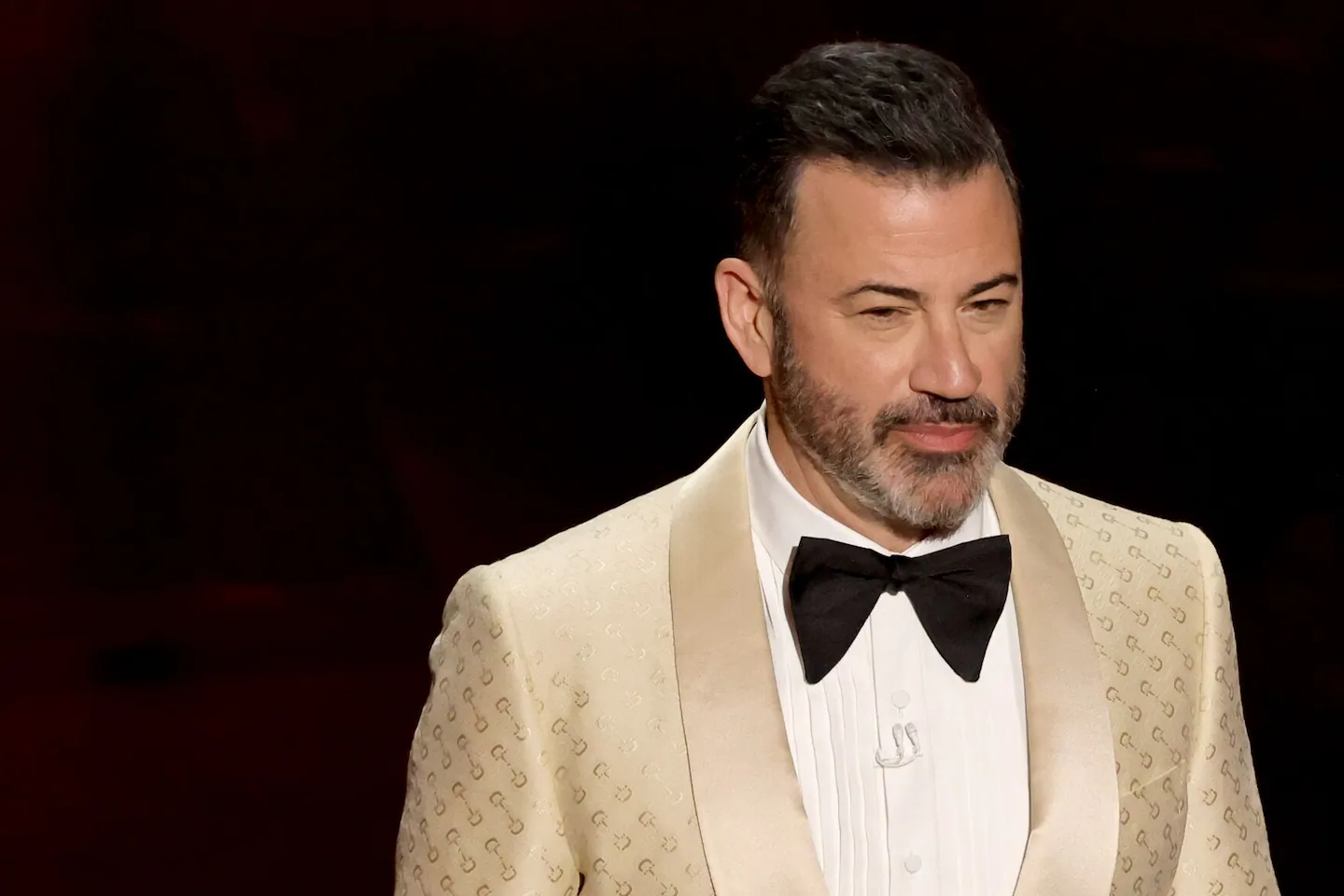
“Great News for America: The ratings challenged Jimmy Kimmel Show is CANCELLED,” Trump wrote on Truth Social last week. “Congratulations to ABC for finally having the courage to do what had to be done. Kimmel has ZERO talent, and worse ratings than even Colbert, if that’s possible. That leaves Jimmy [Fallon] and Seth [Meyers], two total losers, on Fake News NBC. Their ratings are also horrible. Do it NBC!!!”
The actions taken against Kimmel and Colbert have delivered a jolting reminder that performers, however famous and freewheeling they may be, ultimately serve at the whim of the corporations that provide them with a platform. When push comes to shove, it’s a pretty safe bet that those corporations are going to prioritize the bottom line over the principles of free speech.
While the New York Times reported that CBS executives decided to cancel Colbert’s show because it was losing tens of millions of dollars a year, few saw it as a coincidence that it was announced at a time when Paramount, parent company of CBS, needed the Federal Communications Commission’s approval for a multibillion merger with the movie studio Skydance Media. They got it.
As for Kimmel, he hadn’t attacked Kirk; he suggested the MAGA movement was trying to deflect from the likelihood that the shooter was “one of them.”
But ABC suspended his show hours after Brendan Carr, chairman of the FCC, described Kimmel’s comments as “truly sick.”
“We can do this the easy way or the hard way,” Carr said on a right-wing podcast. “These companies can find ways to change conduct to take action on Kimmel or, you know, there’s going to be additional work for the FCC ahead.” ABC’s move came under pressure from Nexstar Media Group, a local television broadcasting group that controls more than 30 ABC affiliates and was seeking FCC approval for a multibillion-door acquisition of Tegna, a rival broadcast company.
From Trump’s perspective, his campaign to topple late-night hosts makes sense. At a time when Democratic Party leaders have struggled to counter a president who observes no rules of behavior or limits to his power, late-night TV hosts have stepped forcefully into the breach. Indeed, it can be said that Colbert, Kimmel, Trevor Noah, John Oliver, Seth Meyers, Amber Ruffin, Samantha Bee, Jimmy Fallon, Hasan Minhaj, and others have functioned as, essentially, the opposition party during the Trump era.
But the transformation of late-night TV into a sharper-edged, more confrontational genre actually predates Trump’s presidency.
At the dawn of the 21st century ,Jon Stewart turned Comedy Central’s “The Daily Show” into a scathing and systematic challenge into a scathing and systematic challenge to power in in all its forms: political, journalistic, corporate. Stewart was later joined in that effort by his friend Colbert with “The Colbert Report,” on which Colbert played a right-wing blowhard modeled on Bill O’Reilly.
Today, as the worlds of entertainment, politics, and business collide, boldface names are increasingly entering the fray.
On Monday, Tom Hanks, Meryl Streep, Maya Rudolph and Lin-Manuel Miranda were among 400 artists signing an open letter published by the American Civil Liberties Union that said in part: “Regardless of our political affiliation, or whether we engage in politics or not, we all love our country. We also share the belief that our voices should never be silenced by those in power – because if it happens to one of us, it happens to all of us.”
On “The View” Monday, cohost Ana Navarro said: “The government itself is using its weight and power to bully and scare people into silence. This is what dictators and authoritarians do.”
Last Thursday night, Colbert began his opening monologue with: “I’m your host, Stephen Colbert, but tonight, we are all Jimmy Kimmel.” Shrewsbury native Mike Birbiglia, in an Instagram post titled “Calling all comedians,” urged his fellow comedians to “call out the insanity of pulling Kimmel off the air.”
In a post on his Team Coco Instagram page, Brookline-bred Conan O’Brien wrote: “The suspension of Jimmy Kimmel and the promise to silence other Late Night hosts for criticizing the administration should disturb everyone on the Right, Left, and Center. It’s wrong and anyone with a conscience knows it’s wrong.”
Television essentially created Trump as a political force, so his attacks on the medium are a case of biting the hand that fed him. In his 2019 book “Audience of One,” New York Times television critic James Poniewozik described Trump as “a man who, through a four-decades-long TV performance, achieved symbiosis with the medium. Its impulses were his impulses; its appetites were his appetites; its mentality was his mentality.”
NBC made him a reality-TV star at the very moment that dubious genre was colonizing prime time, appointing him as host on NBC’s “The Apprentice,” which presented him as a successful businessman, despite his multiple bankruptcies. Cable-news networks televised Trump’s campaign rallies live, viewing them as compelling theater, and allowed him to do phone interviews on the air rather than requiring him to be in the studio.
Then there was the infamous utterance in February 2016 by Leslie Moonves, then the executive chairman and CEO of CBS. Speaking of Trump and his campaign at a conference in San Francisco on media and technology, Moonves said: “It may not be good for America, but it’s damn good for CBS.” Describing the campaign as a “circus” replete with “bomb throwing,” Moonves said “Man, who would have expected the ride we’re all having right now? … The money’s rolling in and this is fun.”
Fun is in short supply these days. There seems to be a new urgency, with the palpable sense that the nation has arrived at a defining moment, that the battle against autocracy might be won or lost now.
President Barack Obama’s jokes about Trump at the White House Correspondents Dinner in 2011, with Trump seething in the audience, are often cited as the impetus for him to run for president in 2016.
Less well-remembered are the cracks at that dinner by Seth Meyers, which included this line: “Donald Trump has been saying that he will run for president as a Republican—which is surprising, since I just assumed that he was running as a joke.”
Many have forgotten Meyers’s words. It’s doubtful that Trump is one of them.



